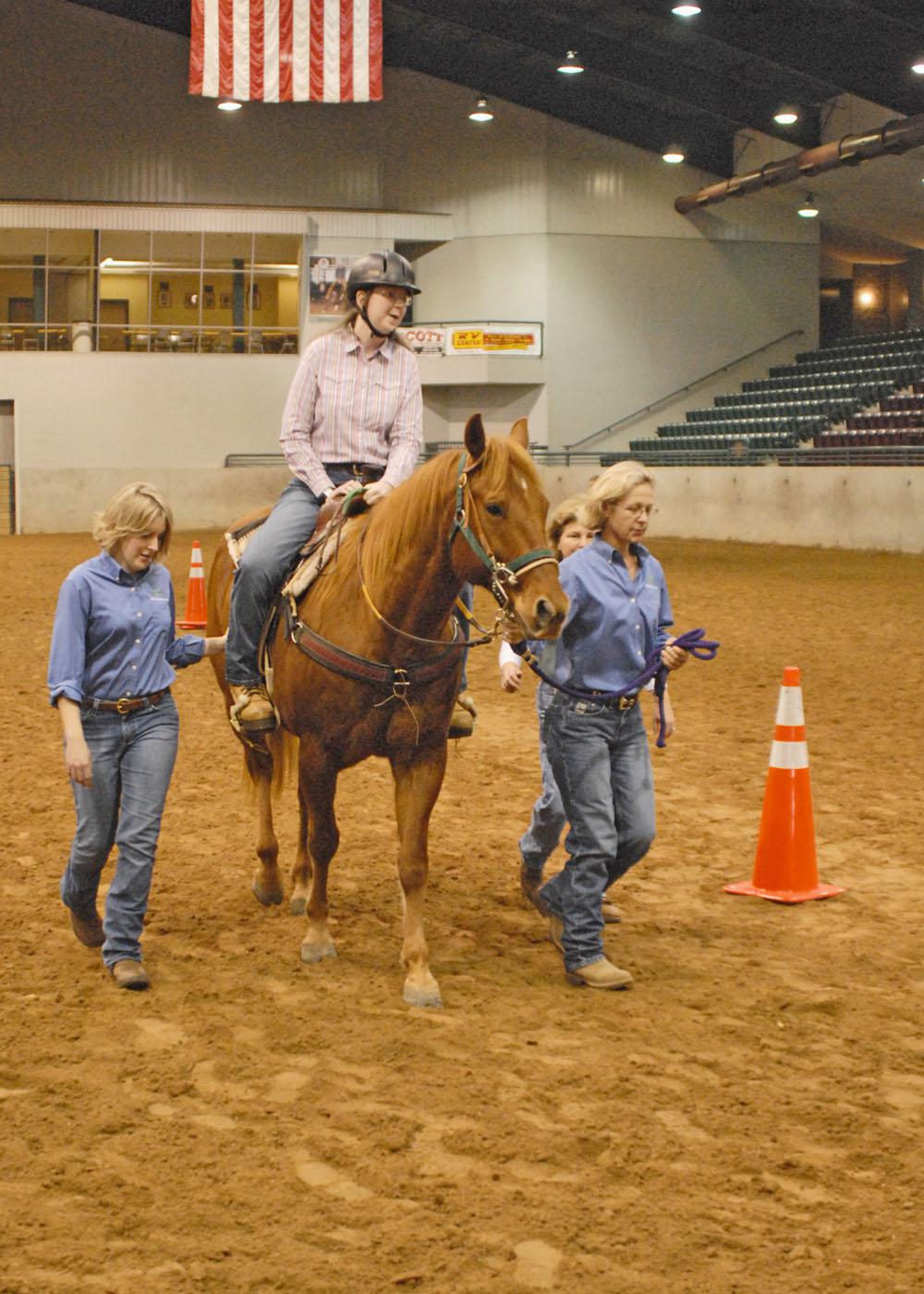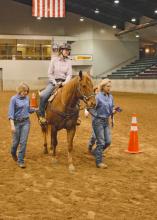Information Possibly Outdated
The information presented on this page was originally released on January 8, 2009. It may not be outdated, but please search our site for more current information. If you plan to quote or reference this information in a publication, please check with the Extension specialist or author before proceeding.
Therapeutic riding program reaccredited
MISSISSIPPI STATE – Volunteers, instructors, therapists and an ideal facility came together in 2008 to earn reaccreditation for Mississippi State University’s 4-H therapeutic riding program.
Now in its eighth year, the 4-H Therapeutic Equestrian Activity Member program offers horseback riding to children and adults who have challenges ranging from autism to spinal injuries.
Program coordinator Mary Riley said site visitors from the North American Riding for the Handicapped Association based their judgment on 83 standards in three different categories. One of the categories considered for certification is the program’s facility.
“Having a dedicated horse facility was a major asset in our accreditation. Many programs don’t have that,” Riley said. “The horse park management has been accommodating and willing to put in the extra safety features that are necessary for a program like ours.”
The program offers two types of riding: therapeutic riding and hippotherapy. Hippotherapy must be conducted by a medical professional, and both types require a certified therapeutic riding instructor. Sixteen of the standards focused on the hippotherapy portion of the program.
Linda Maiers, occupational therapist with Oktibbeha County Hospital, conducted hippotherapy for the session that was observed during the recertification visits. Maiers helps identify goals for the riders and guides them through tasks as they ride.
“When we were observed, I pretty much just did my regular thing,” she said.
Maiers’ “regular thing” must be effective, as the program passed with a score of 100 percent in all categories.
Riley is one of two therapeutic riding instructors in the state with NARHA’s advanced rank. This means she can provide apprenticeships and training for others interested in becoming instructors. Because she is certified and the program has premier accreditation, the TEAM program at the horse park can serve as a host site for instructor certifications and a visitation site for students enrolled in physical or occupational therapy assistantship programs.
“So many people come together to make this happen, from the riders and their families to the volunteers to the therapists, but it’s worth the work because we see firsthand the self-confidence and sense of accomplishment riders get from the program,” Riley said.
The TEAM program offers two six- to eight-week-long sessions each year, one in fall and one in spring. Participants gain mental and physical skills by riding a horse and responding to verbal questions and commands during each of the 45-minute riding sessions.



